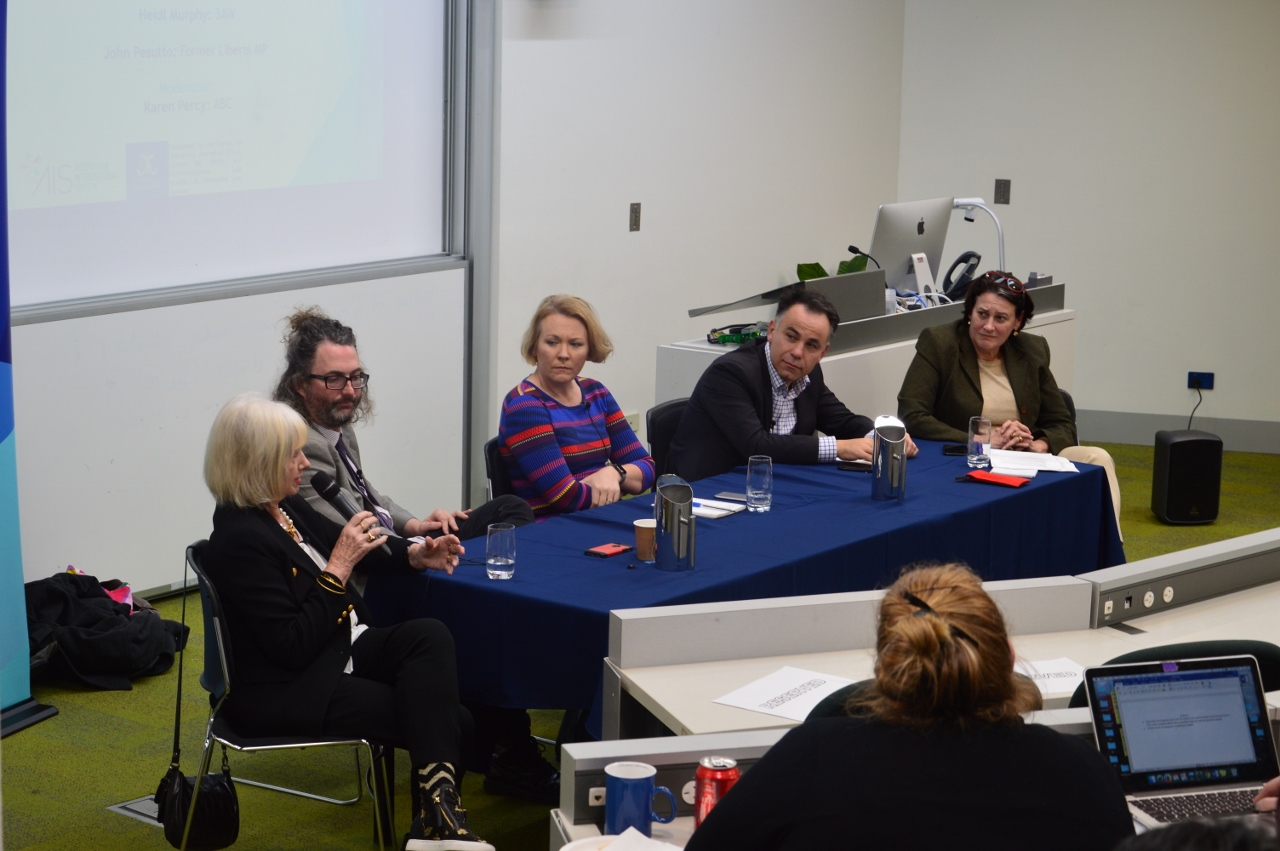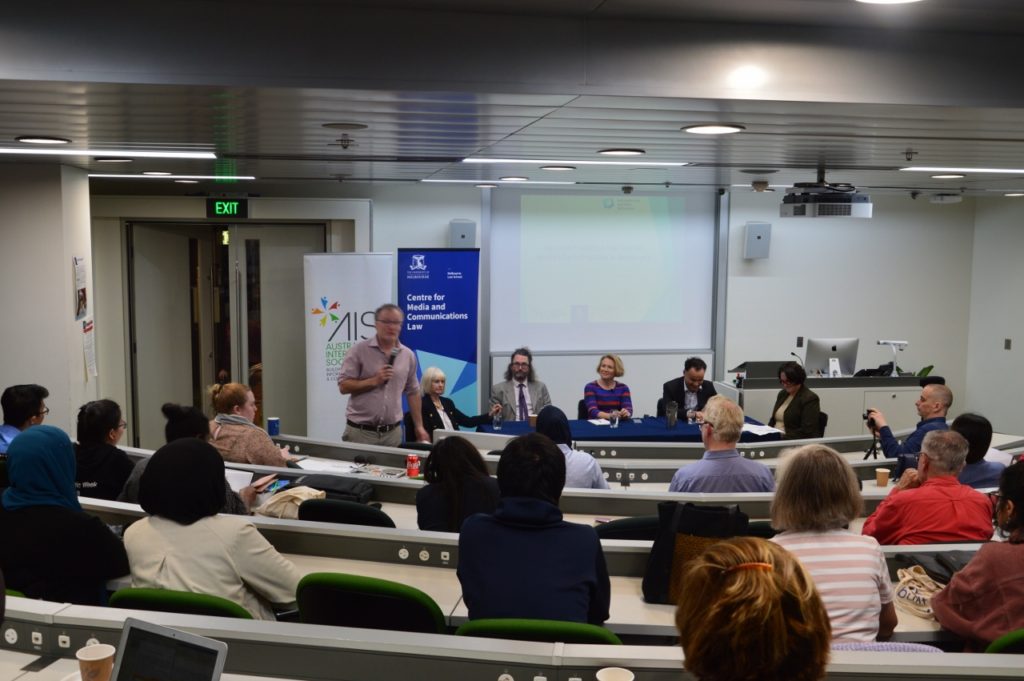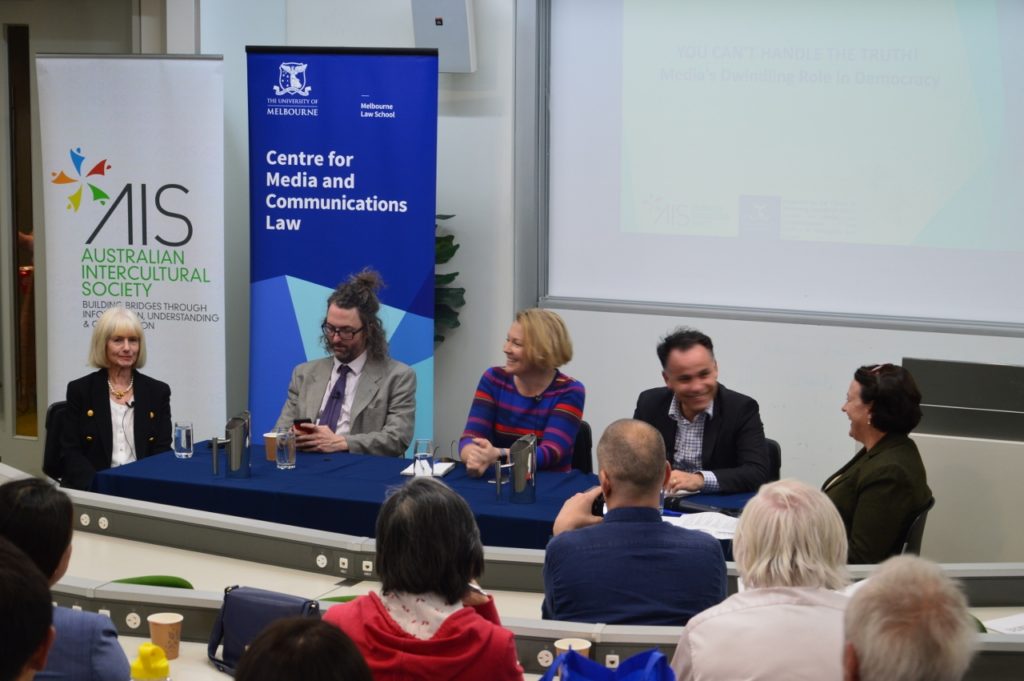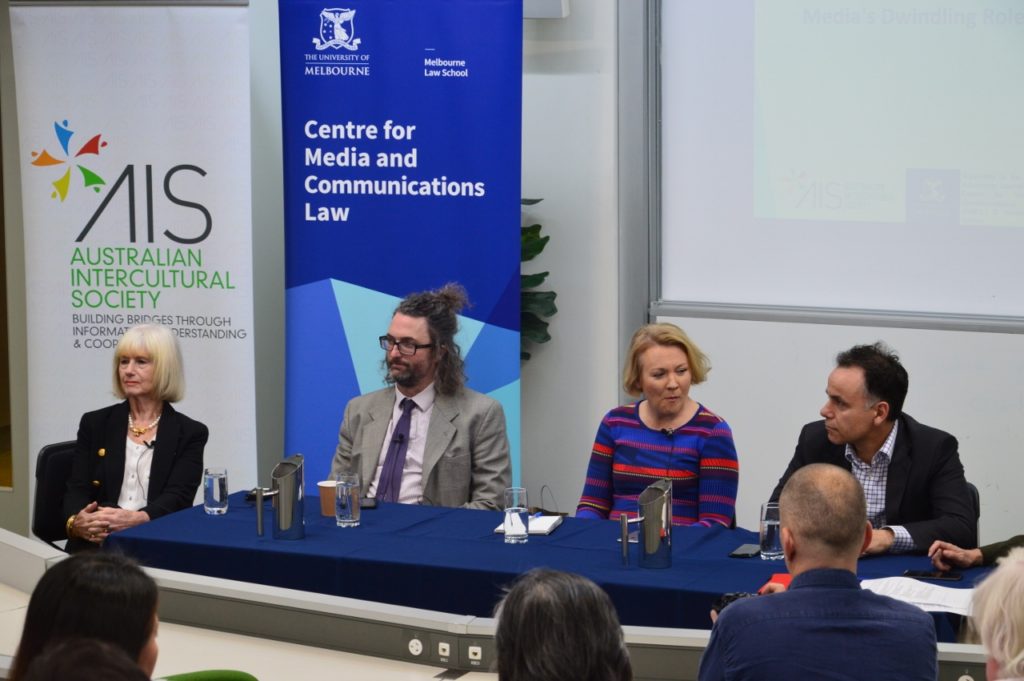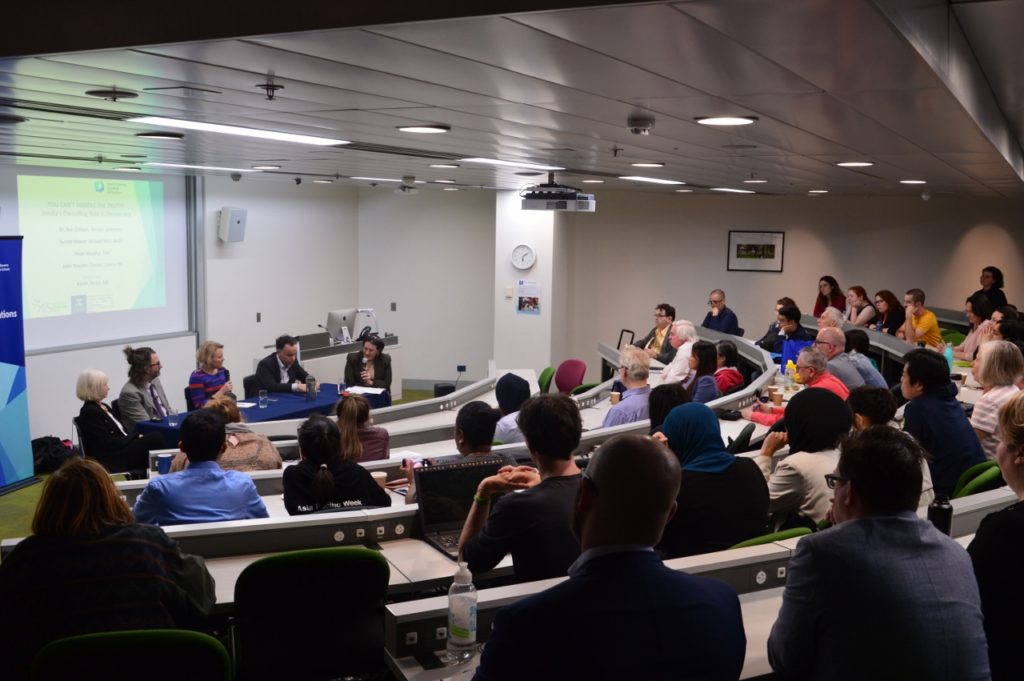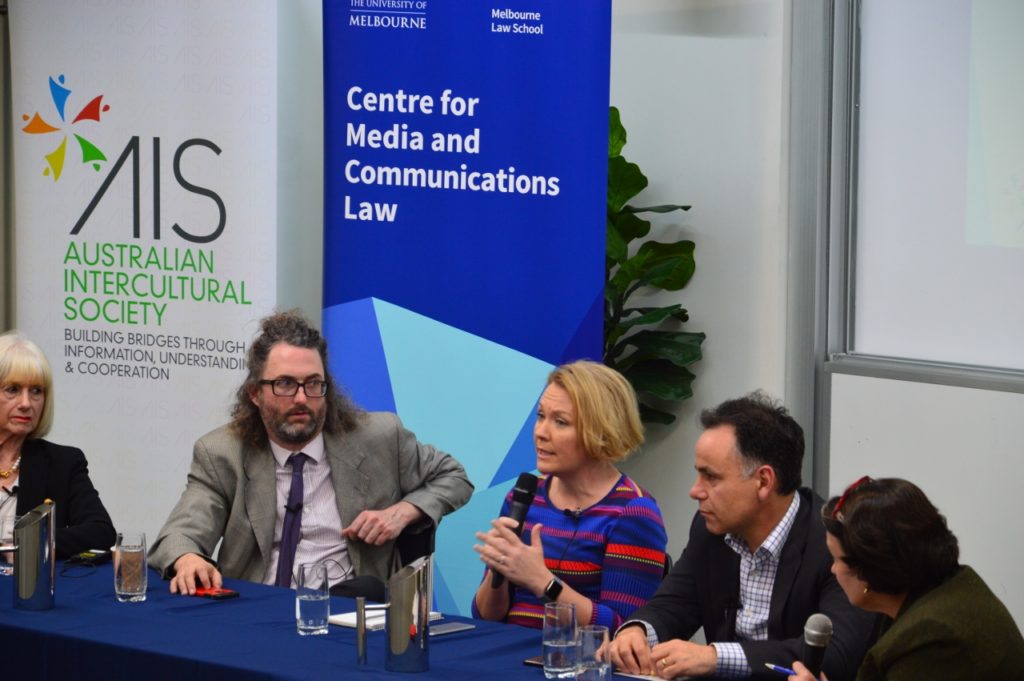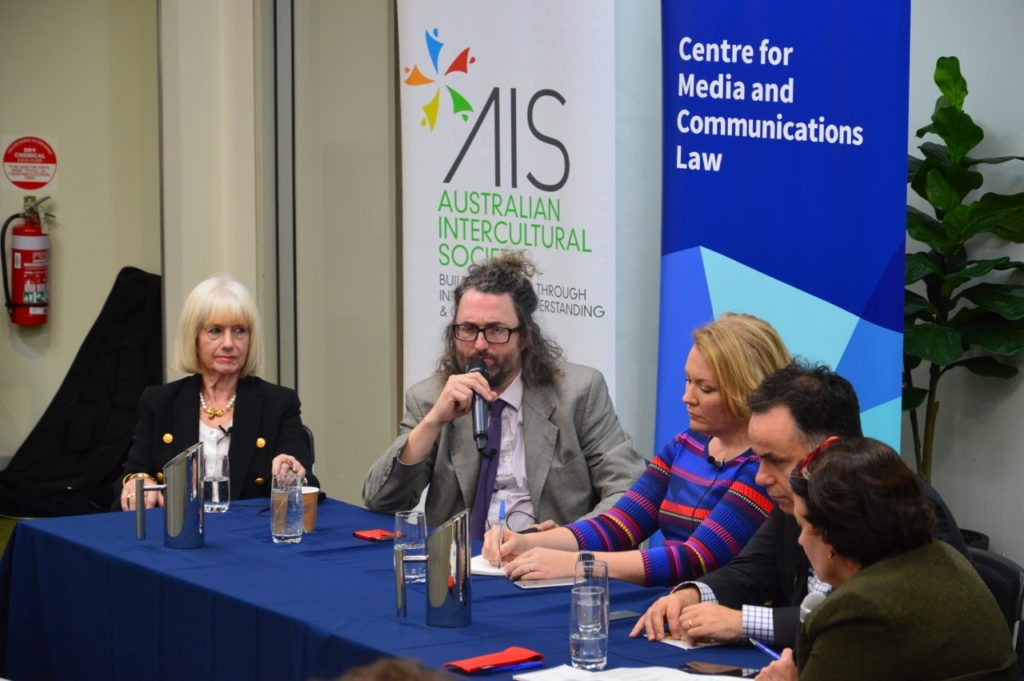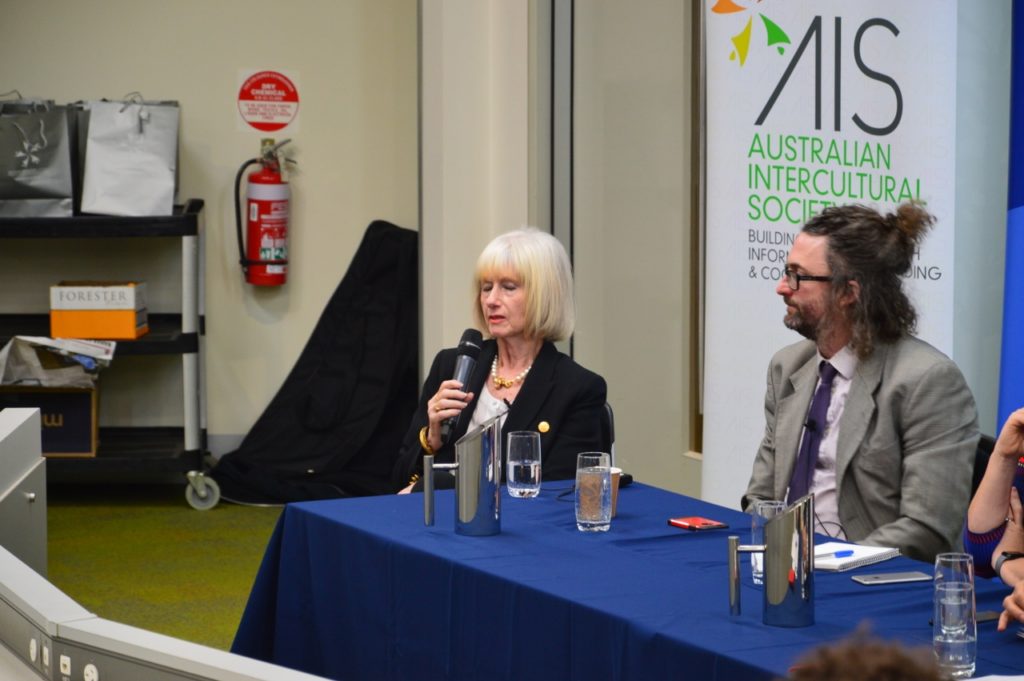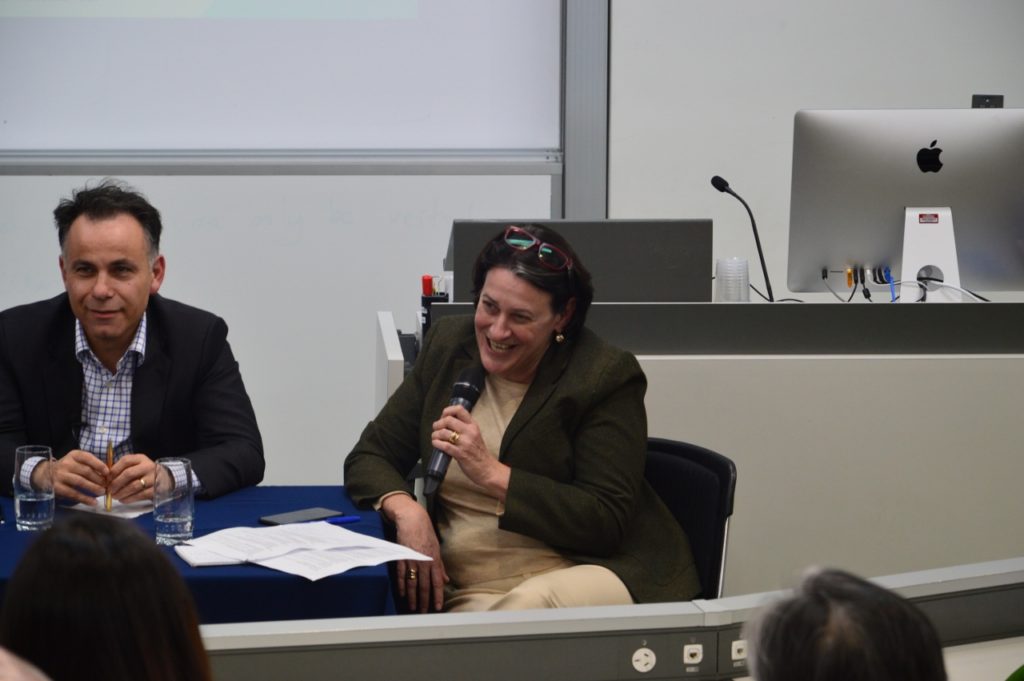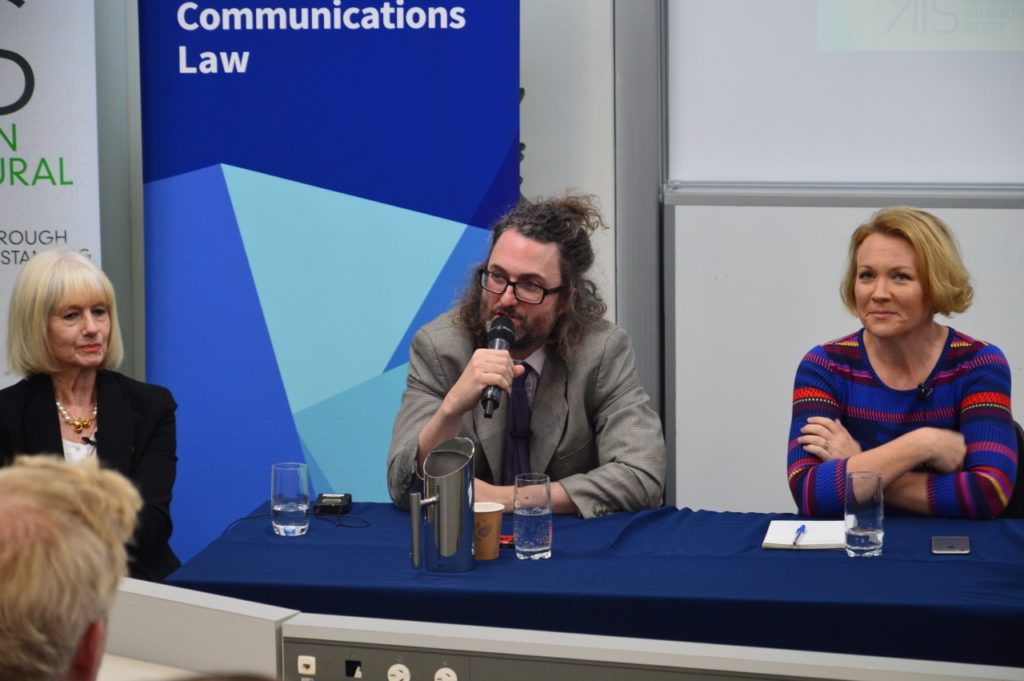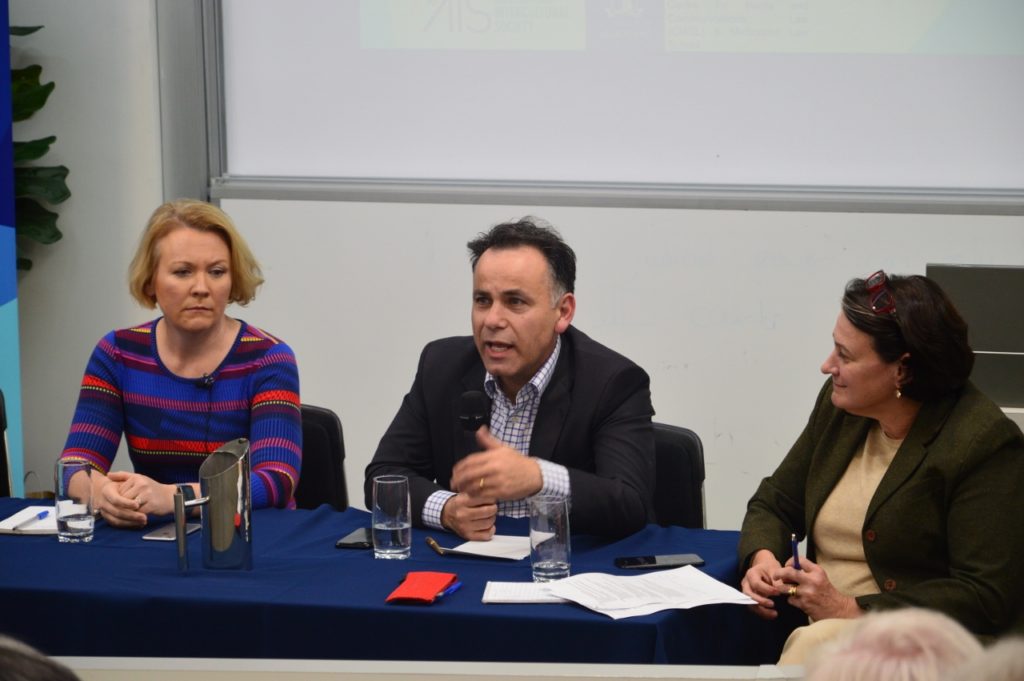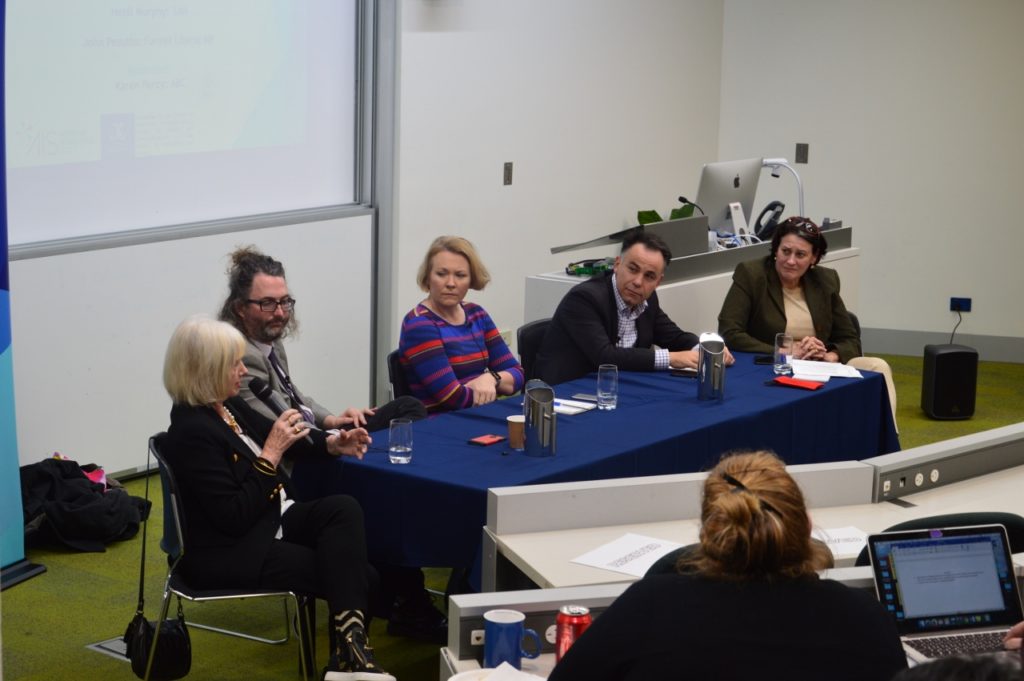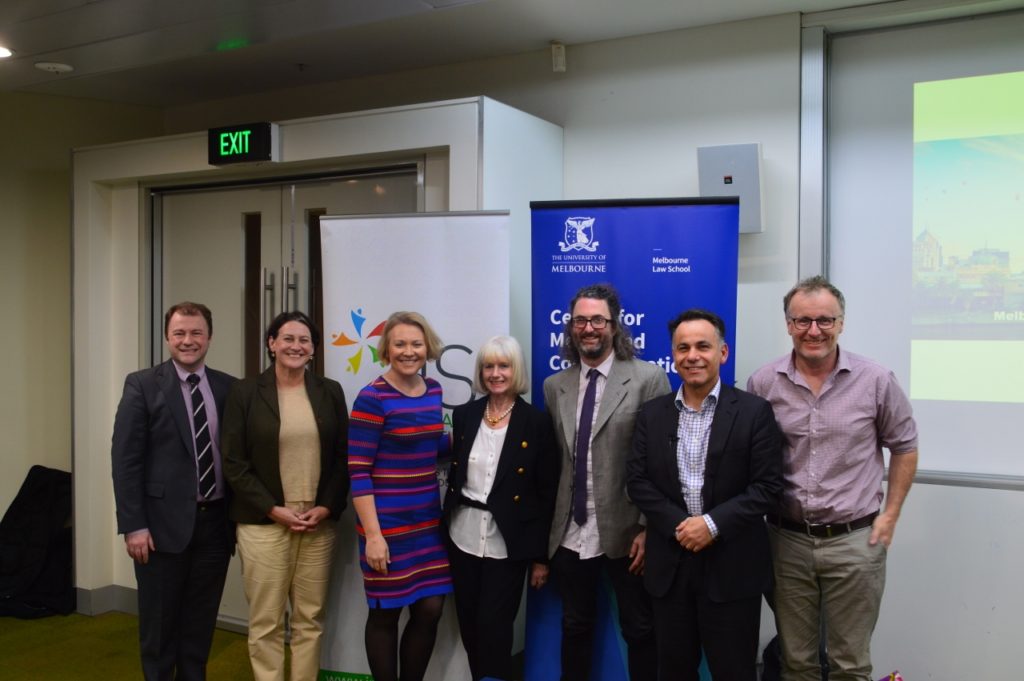‘YOU CAN’T HANDLE THE TRUTH! Media’s dwindling role in Democracy’
Do you consume some form of media on a daily basis? Do you check Twitter often, turn on the news and have it on as background noise while getting ready in the morning, or read the morning headlines while sitting on the tram heading to work? Have you ever wondered if media plays an important part in democracy?
On Thursday September 19th 2019, the Australian Intercultural Society alongside the Melbourne Law School and the Centre for Advancing Journalism hosted a discussion panel at the University of Melbourne. The discussion was held in order to discuss the media’s dwindling role in democracy and the consequences that arise from it. The panel consisted of former state MP John Pesutto, 3AW host Heidi Murphy, well-known media figure Dr. Ben Eltham, investigative journalist Sandie Keane, and was moderated by the delightful Karen Percy, all of whom are in the Media or closely related to it.
The discussion started by Karen Percy asking the panel on a scale of 1-10 what would they currently rate the condition of the media . John Pesutto rated it a three saying that “it is bad but not as bad as other countries”. Heidi Murphy rated it a 5, piggybacking off of John Pesutto saying that “it’s bad but not as bad as the Middle Eastern countries where reporters are disappearing”. Dr. Ben Eltham rated it a 7 stating “it is the worst time in 40 years and within the last 20 years the government has given more restraints to reporters about what they can report”. Sandie Keane followed him up by also rating it a 7 and saying “that anyone can sue for defamation, whether it is the truth or not”.
The discussion continued on from there, with the panellists discussing topics about Federal Regulations and the reduction of Freedom of Information laws. Dr. Ben Eltham stated that “because of the reduction of Freedom of Information laws there aren’t as many investigative journalism as there used to be, but that it is really important and there needs to be more investigative journalist. There are very few people covering local government corruption which leads to more corruption”. Heidi suggested that “politicians should be held accountable when accused of something by a journalist. Journalist need to stick together when politicians refuse to answer a question about a certain topic until they answer”.
One of the questions that spurred much discussion in the Q&A section of the night was a question asking about the racial bias factor in the media. All of the panelists agreed that there is a diversity problem in the media as it is hard to get diverse panellists and personalities in the broader mainstream media outlets. There are not many applicants of Islamic background or any other different kind of backgrounds which lead to a diversity issue in the media. Another person asked if there is an ‘aura of smugness’ involved with traditional media, and surprisingly the panelists agreed that there was. The panel agreed that journalists should come out of the bubble of traditional media and join social media and talk to the people on Twitter or react to comments on certain articles to engage with more people.
Although some people may have left the panel with the idea that traditional media was just another dying industry with too much red tape, many attendees seemed happy to partake in the panel and spoke with the panelists afterwards. We can only wait to see if traditional media will have a stronger impact in democracy or shrivel up into clickbait articles.
For more information on the panel, see the video and photos below.

